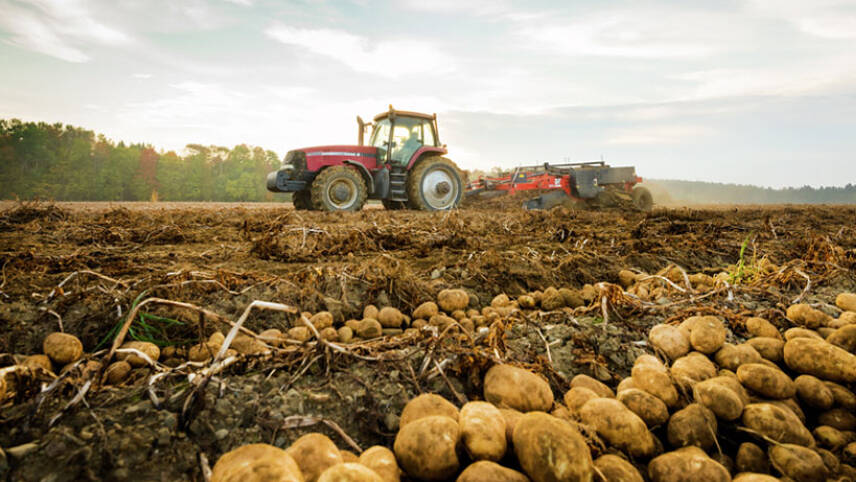Register for free and continue reading
Join our growing army of changemakers and get unlimited access to our premium content

None of the assessed companies have disclosed targets to reduce non-CO2 emissions specifically.
But its Manifesto also includes wording around key policies intended to reduce packaging waste and plastic pollution which some green groups believe is weak and ambiguous.
Published on Tuesday (13 February), the Manifesto reiterates the Federation’s commitment to net-zero by 2040 and includes several policy recommendations to ease the industry’s transition.
These include expanding grants and other incentives for food and drink manufacturers seeking to install innovative green energy technologies and energy efficiency technologies, beyond the Industrial Energy Transformation Fund that is allocated on a competitive basis.
Fund backing was last year granted to firms including Britvic, Heineken, Kellogg’s and Tate and Lyle.
The FDF is also imploring Ministers to facilitate the creation of a new ‘Sustainable Food Pact’. It describes the Pact as a “pre-competitive industry collaboration to restore and maintain the natural systems needed for agricultural productivity”. It stops short of mentioning regenerative agriculture directly.
The UK Government estimates that intensive agriculture has led to the loss of about half of the organic carbon in arable soils. It has also led to biodiversity loss. Moreover, some 300,000 hectares are contaminated in the UK and the true extent of microplastic contamination is unknown.
Water security is another key issue impacting nature and agriculture. 2022 marked one of the UK’s driest summers on record, prompting water regulator Ofwat and the UK Government to provide more funding to incentivise water storage systems on farmland.
The UK Government has set a target to increase the amount of water stored by the agriculture and horticulture sectors by 66% by 2050, to help protect food production even in times of drought.
Spotlight on plastics and packaging
The FDF’s top objectives in relation to green policy relate to the successful establishment of new Extended Producer Responsibility (EPR) requirements for packaging producers and, within these requirements, a UK-wide Deposit Return Scheme (DRS) for drinks packaging.
These schemes were first promised in late 2018 but implementation has repeatedly been stalled due to Covid-19, then to consecutive changes in Prime Minister in 2022.
Consequently, the nationwide rollout of the DRS in the UK has been postponed to early 2025. Additionally, Scotland, initially aiming to pioneer its own version first in Britain, has also delayed its launch until March this year, sparking criticism from environmental advocates.
The FDF’s manifesto stipulates that EPR should only be launched once its design has been tweaked to ensure it is “world-leading”. It calls for the implementation of the scheme by the end of the next Parliamentary Term which, at its latest, could conclude in early 2029.
The FDF wants to see EPR feed ring-fenced, to be used by local authorities to improve recycling infrastructure.
This is a similar call to action as that recently made by the British Retail Consortium (BRC), which would prefer to see the funds split across the recycling industry’s value chain.
Unlike the FDF, however, the BRC has been vocally advocating for repeated delays to the DRS. The FDF wants to see a UK-wide DRS launching “as soon as possible”.
Some green groups have stated that the FDF’s calls to action on packaging are not bold enough to address the nation’s waste management and plastic pollution challenges.
A Plastic Planet and PlasticFree.com co-founder Sian Sutherland said: “Industry will never voluntarily wean itself from plastic without a legislative catalyst that ensures the commercial risks of inaction outweighs those of the avoidance we see today. As the voice of the UK food and drink industry, advocating for the delay of EPR) will only prolong the crisis we inhabit and keep the plastic tap flowing.
“The only thing that counts against the growing plastic disaster is true solutions. Like it or not, that will mean giving business certainty through bans and strong policy.”
City to Sea founder Natalie Fee said: “Whilst it’s great to see the circular economy being one of three priority [sustainability] areas for the FDF, its focus is entirely on recycling, with no mention of refill and reuse. There is absolutely nothing ‘bold’ about that vision whatsoever.”
Fee added: “To suggest that it could take until 2029 to establish EPR is lacking in ambition to say the least – what both business and our environment desperately need is for clarity and for the most ambitious timeline possible, not another five-year delay.”
The FDF told edie that it is not advocating for policymakers to leave EPR implementation until 2029. Instead, it sees the end of the next Parliamentary term as the absolute latest introduction date.


Please login or Register to leave a comment.